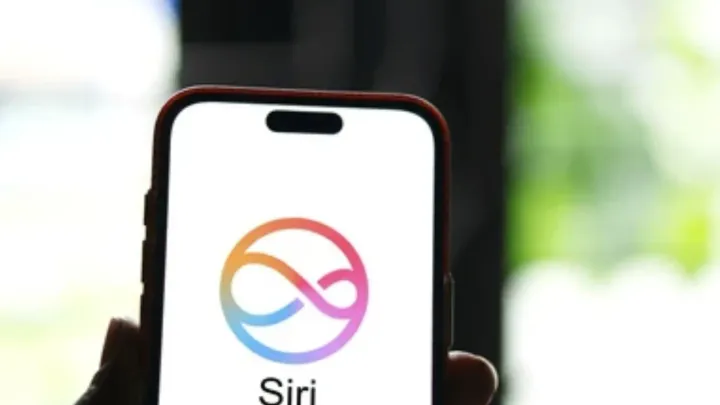No More Private iCloud Backups? Apple Bows to UK’s Demands

Apple Drops Advanced Data Protection in the UK Amid Government Demands
Apple has announced that it is removing one of its most powerful security features, Advanced Data Protection (ADP), for users in the UK. This decision comes amid government pressure to allow law enforcement access to user data.
What does this mean?
If you're in the UK, your iCloud backups will no longer have end-to-end encryption, making them accessible to Apple and, ultimately, British authorities under legal requests.
Let’s break down why Apple made this move, how it affects UK users, and what you can do to protect your data.
What Is Advanced Data Protection (ADP)?
Apple introduced Advanced Data Protection (ADP) in 2022, offering end-to-end encryption for iCloud backups. With this feature enabled, not even Apple could access your:
. iMessages
. Photos
. Notes
. Safari browsing history
. Device backups
This level of security was a major step forward in protecting user privacy. However, Apple is now removing this feature for UK users due to legal pressure.
Why Is Apple Disabling ADP in the UK?
1. Government Pressure and Investigatory Powers Act (IPA)
The UK government has been pushing for greater access to encrypted data, citing national security and crime prevention.
Reports suggest that the UK issued a Technical Capability Notice (TCN) under the Investigatory Powers Act of 2016, which compels tech firms to assist law enforcement in gaining access to user data.
While the UK government has not confirmed issuing this notice, Apple has decided to preemptively remove ADP for new users and phase it out for existing ones.
2. Apple’s Stand on Encryption
Apple has historically resisted government attempts to weaken encryption. In 2016, it famously refused to unlock an iPhone for the FBI in the San Bernardino shooting case.
The company has always argued that creating a backdoor for governments would eventually be exploited by hackers and bad actors.
However, in the UK, Apple has taken a different approach—complying with the government’s demands by weakening iCloud security.
3. Impact on iCloud Backups
With ADP disabled, iCloud backups in the UK will no longer be fully encrypted. This means:
. Apple can access user data if legally compelled
. Authorities can request access under a warrant
. Your messages, photos, and backups are no longer completely private
How Does This Affect UK Apple Users?
1. Your Cloud Data Is Now More Accessible
Before, if someone hacked Apple’s servers, they wouldn’t be able to access your data. Now, Apple has the decryption keys, making user data vulnerable to both legal and illegal access.
2. Law Enforcement Can Access Your iCloud Data
If UK authorities issue a legal request, Apple can now hand over user data, including iMessage history, photos, and backups stored in iCloud.
3. Device Storage Remains Safe (For Now)
Apple is not weakening the encryption on data stored directly on iPhones and iPads. However, because many users rely on iCloud backups, this security gap could expose sensitive information.
4. Cloud Storage Risks vs. Convenience
While users can still store data locally on their devices, many rely on iCloud for backup and device transfers. The removal of ADP makes cloud backups less secure but more accessible to law enforcement.
Apple’s Response: Disappointment & Compliance
Apple has publicly stated its disappointment over having to remove ADP in the UK:
"We are gravely disappointed that the protections provided by ADP will not be available to our customers in the UK given the continuing rise of data breaches and other threats to customer privacy."
Despite this, Apple is complying with UK regulations by:
✔ Disabling ADP for new UK users
✔ Asking existing UK users to turn off ADP manually
✔ Ensuring previously encrypted data remains protected
This decision highlights the ongoing battle between tech companies and governments over data privacy vs. national security.
What Can UK Users Do to Protect Their Data?
If you’re in the UK and concerned about your privacy, here are a few steps you can take:
1. Disable iCloud Backups
Instead of storing sensitive data in iCloud, keep backups on your device or a secure external drive.
2. Use Encrypted Messaging Apps
Apps like Signal and WhatsApp (with end-to-end encryption enabled) still offer strong privacy protections.
3. Enable Two-Factor Authentication (2FA)
Ensure your Apple ID is protected by two-factor authentication to prevent unauthorized access.
4. Use a VPN for Added Privacy
A VPN (Virtual Private Network) can help hide your online activity from surveillance.
5. Store Sensitive Data Locally
Avoid uploading important documents or private messages to iCloud if privacy is a major concern.
Are Other Tech Companies Affected?
Apple isn’t the only company facing government pressure on encryption.
. Signal has threatened to leave the UK if forced to weaken encryption.
. eta (Facebook & WhatsApp) has faced similar scrutiny over its encryption policies.
. Zoom, Telegram, and other platforms are also under pressure to provide access to encrypted communications.
The UK’s aggressive approach to data access laws could set a global precedent, forcing more tech companies to compromise user privacy.
What’s Next for UK Apple Users?
Apple’s decision to remove ADP in the UK is a big step backward for user privacy. While the company claims it will continue to fight for encryption, this move shows that even tech giants can be pressured into compliance.
What This Means for You:
. iCloud backups are no longer fully encrypted
. Authorities may access your stored messages and photos
. You’ll have to choose between convenience (cloud backup) and privacy (local storage)
With growing concerns over data security and surveillance, UK users must take extra precautions to keep their information safe.
. Privacy is not guaranteed—so take control of your own data security.



